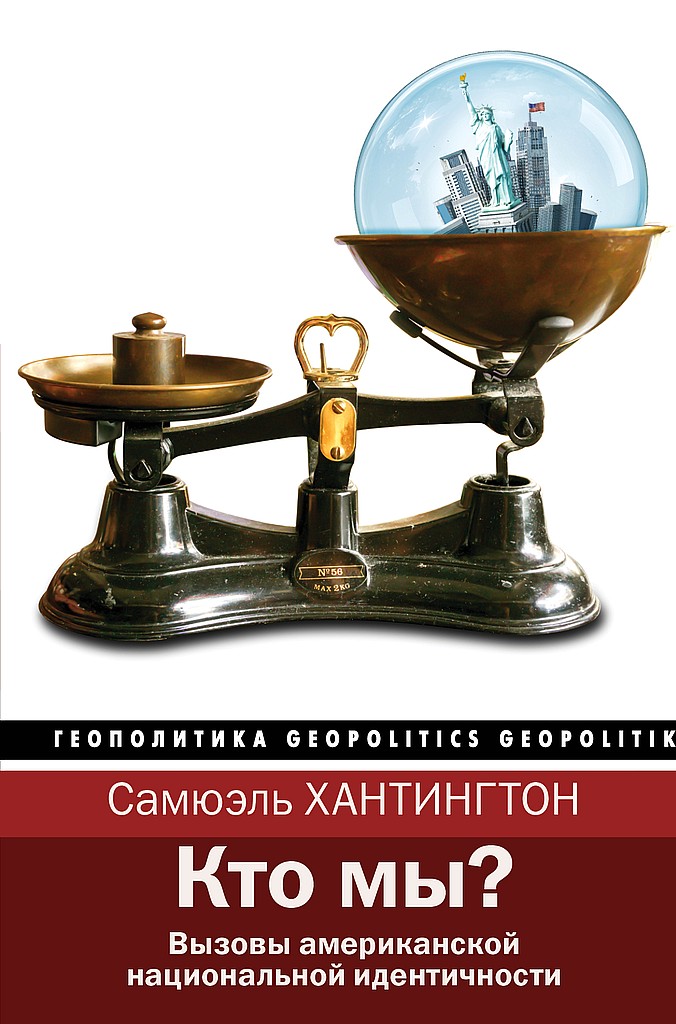Studies in the Group Psychology of the American Peoples (New York: Boni and Liveright, 1924).
{193} Philip Gleason, Speaking of Diversity: Language and Ethnicity in Twentieth-Century America (Baltimore: Johns Hopkins University Press, 1992), p. 51.
{194} Randolph Bourne quoted in T. Alexander Aleinkoff, «A Multicultural Nationalism», American Prospect, no. 36 (January-February 1998), p. 81.
{195} Arthur Mann, The One and the Many: Reflections on the American Identity (Chicago: University of Chicago Press, 1979), p. 137, 142–47.
{196} Theodore Roosevelt quoted in Gordon, Assimilation in American Life, p. 122 from Edward N. Saveth, American Historians and European Immigrants, 1875–1925 (New York: Columbia University Press, 1948), p. 121.
{197} Robert A. Carlson, The Quest for Conformity: Americanization Through Education (New York: John Wiley, 1975), p. 6–7.
{198} Louis Brandeis, Address, Faneuil Hall, Boston, July 4, 1919, quoted in John J. Miller, The Unmaking of Americans (New York: Free Press, 1998).
{199} John F. McClymer, «The Federal Government and the Americanization Movement, 1915–1924», Prologue, 10 (Spring 1978), p. 24; Ronald Fernandez, «Getting Germans to Fight Germans: The Americanizers of World War I», The Journal of Ethnic Studies, 9 (Summer 1981), p. 61.
{200} Carlson, The Quest for Conformity p. 113; Edward George Hartmann, The Movement to Americanize the Immigrant (New York: Columbia University Press 1948), p. 92; Henry Ford, quoted in Otis L. Graham and Elizabeth Koed, «Americanizing the Immigrant, Past and Future», The Social Contract, 4 (Winter 1993–94), p. 101; Gerd Korman, Industrialization, Immigrants and Americanization (Madison: State Historical Society of Wisconsin, 1967), p. 147, 158–59; Higham, Strangers in the Land, p. 244–45.
{201} Higham, Strangers in the Land, p. 249.
{202} Carlson, The Quest for Conformity, p. 89–90.
{203} John F. McClymer, «The Americanization Movement and the Education of the Foreign-Born Adult, 1914–25», in Bernard J. Weiss, ed., American Education and the European Immigrant, 1840–1940 (Urbana: University of Illinois Press, 1992), p. 98; McClymer, «The Federal Government and the Americanization Movement, 1915–1924», p. 40; Hartmann, The Movement to Americanize the Immigrant, p. 64ff.
{204} Miller, The Unmaking of Americans, p. 221, 223.
{205} Carl F. Kaestle, Pillars of the Republic: Common Schools and American Society, 1780–1860 (New York: Hill & Wang 1983), p. 161–62.
{206} Stephen Steinberg, The Ethnic Myth: Race, Ethnicity, and Class in America (New York: Atheneum, 1981), p. 54.
{207} Joel M. Roitman, The Immigrants, the Progressives, and the Schools (Stark, KS: De Young Press 1996), p.1; McClymer, «The Americanization Movement», p. 103; Miller, The Unmaking of Americans, p. 49; Roitman, The Immigrants, the Progressives, and the Schools, p. 51–52; Carlson, The Quest for Conformity, p. 114; Reed Ueda, «When Assimilation Was the American Way», Washington Post, 2 April 1995, p. R10.
{208} Curti, Roots of American Loyalty, p. 223ff; Paul C. Stern, «Why Do People Sacrifice for Their Nations?» Political Psychology, 16 (2, 1995), p. 223–24.
{209} Robin M. Williams, Jr., American Society: A Sociological Interpretation (New York: Knopf, 1952), p. 527, quoted in Gleason, Speaking of Diversity, p. 175.
{210} Gleason, Speaking of Diversity, p. 175; Arthur A. Stein, The Nation at War (Baltimore: Johns Hopkins University Press, 1980), p. 92; Philip Gleason, «American Identity and Americanization», in Stephan Thernstrom, ed., Harvard Encyclopedia of American Ethnic Groups (Cambridge: The Belknap Press of Harvard University Press, 1980), p. 47; Albert O. Hirschman, Journeys Toward Progress (New York: Twentieth Century Fund, 1963), p. 137. See also J. M. Winter, The Great War and the British People (Cambridge: Harvard University Press, 1986).
{211} Hedrick Smith, The Russians (New York: Quadrangle New York Times Books 1976), p. 302–03.
{212} Jack Citrin, Ernst B. Haas, Christopher C. Muste, Beth Reingold, «Is American Nationalism Changing? Implications for Foreign Policy», International Studies Quarterly, 38 (March 1994), p. 3–5.
{213} Robert D. Kaplan, «Fort Leavenworth and the Eclipse of Nationhood», Atlantic Monthly, 278 (September 1996), p. 75ff; Diana Schaub, «On the Character of Generation X», The Public Interest, 137 (Fall 1999), p. 23; George Lipsitz, «Dilemmas of Beset Nationhood: Patriotism, the Family, and Economic Change in the 1970s and 1980s», in Bodnar, ed., Bonds of Affection, p. 251ff; Walter Berns, «On Patriotism», The Public Interest, 127 (Spring 1997), p. 31; Peter H. Schuck, Citizens, Strangers, and In-Betweens: Essays on Immigration and Citizenship (Boulder: Westview Press, 1998), p. 163ff.
{214} Horace Kallen, quoted in Arthur Mann, The One and the Many: Reflections on the American Identity (Chicago: University of Chicago Press, 1979), p. 143–144; Michael Walzer, What It Means To Be An American (New York: Marsilio, 1992), p. 62.
{215} Arthur M. Schlesinger, Jr., The Disuniting of America (New York: W. W. Norton & Company, 1992), p.43; Nathan Glazer, We Are All Multiculturalists Now (Cambridge: Harvard University Press, 1997).
{216} Gunnar Myrdal, An American Dilemma: The Negro Dilemma: The Negro Problem and Modern Democracy (New York: Harper, 1944), p. 4.
{217} Ralph Waldo Emerson, «Lecture on the Times», in Emerson, Prose Works (Boston: Fields, Osgood, 1870), vol. 1, p. 149.
{218} Andrew Kull, The Color-Blind Constitution (Cambridge: Harvard University Press, 1992), p. 1–2, 146–148; U. S. Commission on Civil Rights, Equal Protection of the Laws in Higher Education, 1960 (Washington: U. S. Government Printing Office, 1960), p. 148.
{219} Senator Hubert Humphrey, 110 Congressional Record, 1964, p. 6548–49, quoted in Edward J. Erler, «The Future of Civil Rights: Affirmative Action Redivivus», Notre Dame Journal of Law, Ethics, and Public Policy, 11 (1997), p. 26.
{220} Kull, Color-Blind Constitution, p. 202; Hugh Davis Graham, The Civil Rights Erea: Origins and Development of National Policy, 1960–1972 (New York: Oxford University Press, 1990), p. 150; Herman Belz, Equality Transformed: A Quarter Century of Affirmative Action (New Brunswick: Translation, 1991), p. 25; Nathan Glazer, Ethnic Dilemmas, 1964–1982 (Cambridge, MA: Harvard University Press, 1983), p. 162.
{221} Bayard Rustin, «From Protest to Politics: The Future of the Civil Rights Movement», Commentary, 39 (Feb. 1965), p. 27; Glazer, Ethnic Dilemmas, p. 161–162.



